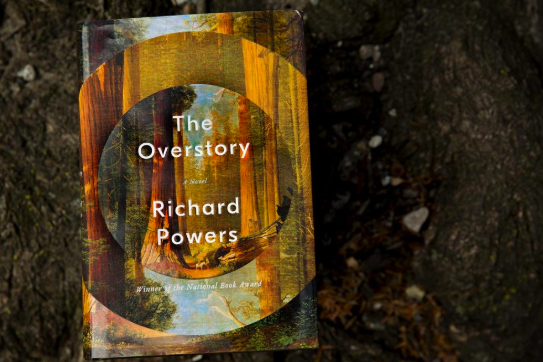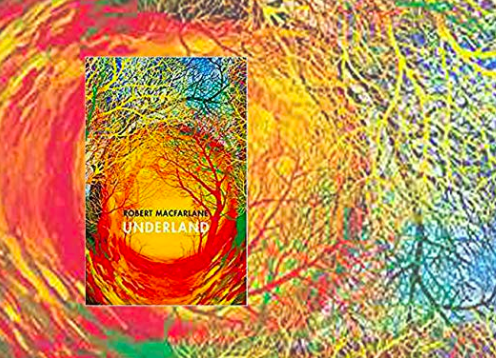
If you are looking for a good read this long weekend, you cannot go wrong with “The Overstory,” the Pulitzer Prize-winning novel by Richard Powers that is a wonderful naturalists’ guide to trees of the U.S. hidden in a novel about iconic American families woven together by their tree stories. And nature writer Robert Macfarlane’s new non-fiction book, “Underland: A Deep Time Journey,” explores what lies beneath the surface looking for evidence of today’s major environmental changes, and taking the reader into caves, catacombs, sinkholes, mines, meltwater moulins, and whirlpools, all to show that man’s destruction of the planet extends below the surface, not just in the atmosphere.
Why This Matters: As Powers writes, “To be human is to confuse a satisfying story with a meaningful one. … The world is failing precisely because no novel can make the contest for the world seem as compelling as the struggles between a few lost people.” Similarly, MacFarlane describes the Knud Rasmussen Glacier in Greenland as “this repulsive, exquisite thing,” an “obscenity”—alien, atavistic, and pivotal—that “should never have surfaced” thus discretely putting the blame for its appearance squarely at our feet. We need more writers who can help us to understand why we need to cherish and protect the natural world — because without it we are doomed.
Overstory: Defending Tree Defenders. Barbara Kingsolver’s review of Overstory in The New York Times contains a few gems itself.
- “Trees will bring these small lives together into large acts of war, love, loyalty and betrayal, in a violent struggle against a mortgaged timber company that is liquidating its assets, including one of the last virgin stands of California redwoods.”
- “It’s a delicate act, writing about tree defenders: In an era when art seems ready to embrace subjects as painful as racism and sexual harassment, it still shrinks from environmental brutality.”
Underland: What Keeps Coming Up When You Look Below Is Evidence of the Influence of Humans. Rebecca Giggs’ review in July’s Atlantic makes a compelling case for the book.
- She writes that “Macfarlane’s significant contribution to an emerging canon of popular ecological writing is to articulate how the ground beneath our feet is not an immutable foundation, indifferent to human dominion.”
- “The themes of captivity and claustrophobia point the reader toward Macfarlane’s overarching subject: how to live in a world of collapsing horizons.”
To Go Deeper: The Revelator publishes a book list each month, you can find July’s here. And Yale’s Climate Connection suggests these books on climate solutions. Happy reading!

July 2, 2019 » Overstory, Pulitzer, Richard Powers, Robert MacFarlane, Underland


